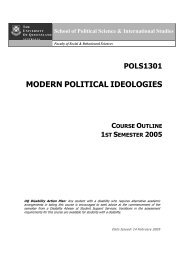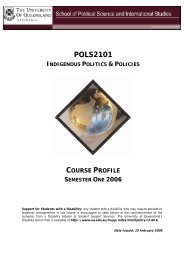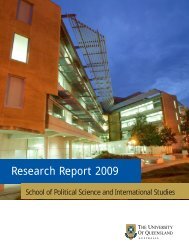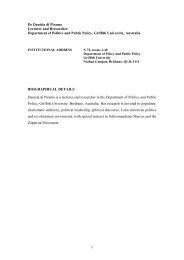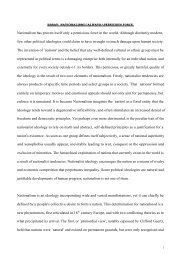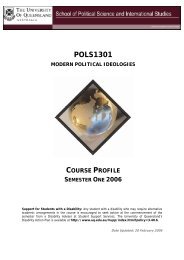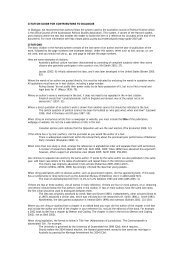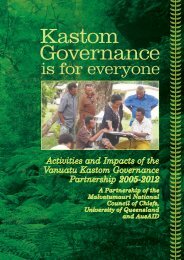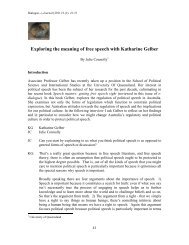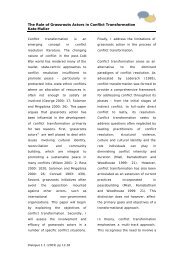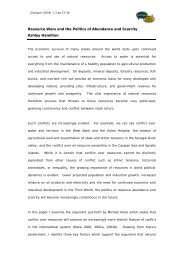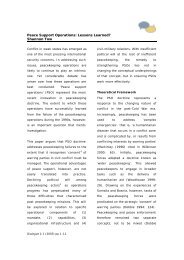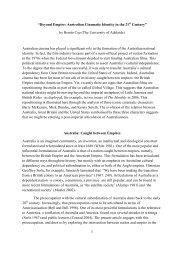old quarrel between - School of Political Science and International ...
old quarrel between - School of Political Science and International ...
old quarrel between - School of Political Science and International ...
You also want an ePaper? Increase the reach of your titles
YUMPU automatically turns print PDFs into web optimized ePapers that Google loves.
technical skills <strong>of</strong> s<strong>old</strong>iers compared to what poets say about s<strong>old</strong>iering. Plato<br />
argues that a s<strong>old</strong>ier can talk about s<strong>old</strong>iering, that they can teach s<strong>old</strong>iering<br />
to the next generation <strong>of</strong> guardians, because they have been s<strong>old</strong>iers. The<br />
poet, in contrast, has never been a s<strong>old</strong>ier <strong>and</strong> therefore has no knowledge <strong>of</strong><br />
s<strong>old</strong>iering except as a representation from a particular perspective. This whole<br />
argument rests on the assumption that what the poet speaks about is the<br />
technical skill <strong>of</strong> s<strong>old</strong>iering. That is, if the poet only represents what is already<br />
present, as the example <strong>of</strong> Plato’s ‘bed’ suggests, then the poet may only give<br />
a representation <strong>of</strong> the already present bed <strong>and</strong> therefore the poet brings to<br />
appearance nothing real but only appearances <strong>of</strong> the phenomenon.<br />
The problem with this account is that poetry does not talk about the technical<br />
skills <strong>of</strong> s<strong>old</strong>iering, the poetic is not concerned with ‘production’ at all, but<br />
with the heroic, the brave <strong>and</strong> the cowardly. That is, a s<strong>old</strong>ier may be very<br />
skilled at s<strong>old</strong>iering but, what the poet ‘produces’, to remain within this<br />
language, is to show the s<strong>old</strong>iering in light <strong>of</strong> being heroic, brave or cowardly.<br />
So when Plato’s Socrates writes that poets have no knowledge about the<br />
subjects about which they speak, he ignores the creative power <strong>of</strong> the poet <strong>of</strong><br />
bringing things into appearance so that it can become ‘knowledge’, as<br />
Edelman writes, ‘art generates the ideas about leadership, bravery,<br />
cowardice, altruism, dangers, authority, <strong>and</strong> fantasies about the future that<br />
people typically assume to be reflections . . .’ (Edelman, 1995: 2-3). Plato’s<br />
Socrates begins all their discussions regarding the limitations <strong>of</strong> poets with<br />
the ‘things’ already present. In Ion, as already discussed, Socrates questions<br />
Ion regarding the issue <strong>of</strong> having adequate knowledge about various subjects<br />
but this ‘knowledge’ is only possible in regards to what is already present or<br />
what has already been shown. It is always knowledge about a particular thing<br />
such as ‘health’. What the poet brings to presence is what is not already<br />
present as such. For example, a s<strong>old</strong>ier might know that they must h<strong>old</strong><br />
position in the face <strong>of</strong> the enemy at all costs as a technical skill <strong>and</strong> as an act<br />
Dialogue (2007) 5:1 35



